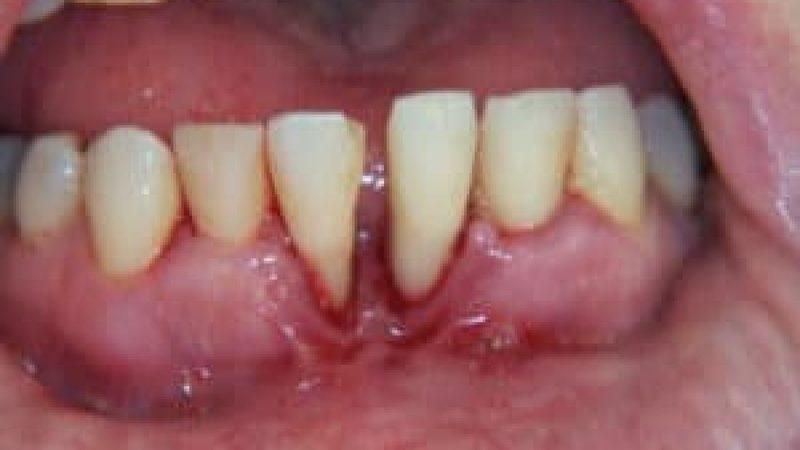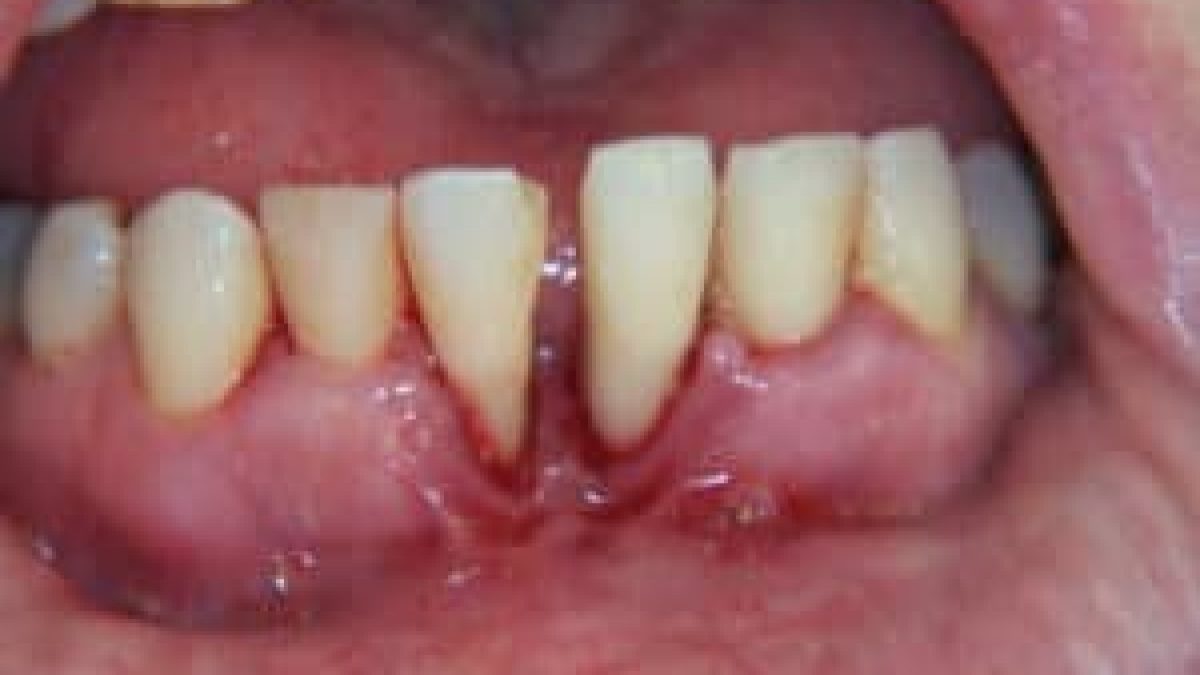
Can you get dental implants if you have periodontal disease? Yes. dental implants can be an option for with periodontal disease, but treating the gum disease is crucial before proceeding with the implant procedure. Periodontal disease affects the gums and tooth-supporting bone, which can impact implant success. A dentist will assess the disease’s severity and recommend treatment to control it. Once the periodontal disease is managed, dental implants become a viable long-term solution for missing teeth. Maintaining excellent oral hygiene is essential to ensure the success of dental implants in such cases.
Can You Get Dental Implants if You Have Periodontal Disease?
Dental implants are an effective solution for missing teeth, but having periodontal disease raises questions about candidacy. Periodontal disease, or gum disease, affects gum and tooth support structures, potentially leading to tooth loss. This article examines the feasibility of dental implants for individuals with periodontal disease and factors influencing eligibility.
Understanding Periodontal Disease and Dental Implants
Periodontal disease, marked by deep gum pockets, gum recession, bone loss, and loose teeth, can pose challenges for successful dental implants. Implants rely on a sturdy foundation of healthy bone and gums. Severe periodontal disease with substantial bone loss or gum recession may hinder implant placement. Yet, each case is unique, and consultation with a dental professional is crucial. They will assess your gum and bone health, and may suggest therapies like gum disease treatment or bone grafting to enhance the chances of successful implant placement.
Treatment of Periodontal Disease Before Implant Placement
Before considering dental implants, address and treat existing periodontal disease:
- Scaling and Root Planing: This deep cleaning procedure removes gumline plaque and tartar buildup.
- Antibiotics or Antimicrobial Rinses: Prescribed to control infection.
- Advanced Treatment: In severe cases, gum surgery or bone grafting may be needed to restore gum and bone health.
Your dentist or periodontist will create a personalized treatment plan based on disease severity and overall oral health.
Factors That Affect Eligibility for Dental Implants
While periodontal disease can complicate the implant placement process, several factors influence your eligibility for dental implants. These factors include:
1. Severity of periodontal disease: The extent of gum disease and bone loss will impact the success of implant placement. Severe cases may require additional treatment or alternative tooth replacement options.
2. Overall oral health: Good oral hygiene and a healthy mouth are essential for the success of dental implants. It is crucial to maintain regular dental visits and follow proper oral hygiene practices to ensure the longevity of your implants.
3. Smoking: Smoking has been linked to an increased risk of implant failure. If you are a smoker, it is recommended to quit before undergoing implant surgery.
4. Medical conditions: Certain medical conditions, such as uncontrolled diabetes or autoimmune disorders, may affect the healing process and overall success of dental implants. Your dentist will evaluate your medical history and determine if implants are a suitable option for you.
5. Bone density: Sufficient bone density is necessary to support the implant post. If you have experienced significant bone loss due to periodontal disease, a bone graft may be required to strengthen the area before implant placement.
The Importance of Dental Implant Consultation
Can you get dental implants if you have periodontal disease? Consult a qualified dental professional for a comprehensive assessment. They’ll evaluate factors like gum disease severity, bone density, and overall health to determine feasibility.
In the consultation, expect information on the implant process, including timelines, risks, and expected outcomes. This ensures an informed decision about whether dental implants suit your needs.
Conclusion
In conclusion, having periodontal disease doesn’t automatically disqualify you from getting dental implants. Eligibility depends on various factors, including the severity of your gum disease and overall oral health. Consult a dental professional to assess your case and find the best treatment for restoring your smile. Maintain good oral hygiene and follow your dentist’s guidance to ensure the health and durability of your dental implants.
Key Takeaways: Can I Get Dental Implants With Periodontal Disease?
- Having periodontal disease may affect your eligibility for dental implants.
- A thorough assessment by a dental professional is necessary to determine if dental implants are suitable for you.
- Periodontal disease should be treated and stabilized before considering dental implant surgery.
- Good oral hygiene practices, including regular brushing and flossing, are essential for successful dental implant outcomes.
- Regular follow-up visits with your dentist are crucial to monitor the health of your dental implants and prevent complications.
Frequently Asked Questions
Is it possible to get dental implants with periodontal disease?
Dental implants are possible with periodontal disease, but addressing the gum disease first is crucial. Periodontal disease affects gums and underlying bone, essential for implant success. A dentist will assess your oral health, treat gum disease if present, and consider implants once the disease is controlled.
What steps are taken to manage periodontal disease before getting dental implants?
Before getting dental implants with periodontal disease, your dentist assesses disease severity with x-rays, pocket depth measurement, and gum/bone health evaluation. Treatment may involve cleaning, scaling, antibiotics, or surgery for tissue and bone issues. Addressing periodontal disease is crucial for implant treatment success.
Can dental implants help improve periodontal disease?
Dental implants don’t treat periodontal disease but offer a stable base for replacement teeth, aiding oral hygiene. They restore chewing function, potentially preventing further gum and bone loss. Easier to clean than dentures, implants reduce plaque buildup and gum inflammation, helping manage the disease’s progression.
What are the risks of getting dental implants with periodontal disease?
Dental implants with periodontal disease carry risks due to weakened gums and bone. Mismanaged disease pre-implantation can lead to implant failure. Infection or inflammation in the gums may hinder post-surgery healing, elevating complications and failure risks. Addressing periodontal disease beforehand is vital to minimize these risks for a successful outcome.
How can I prevent periodontal disease after getting dental implants?
To ensure the long-term success of dental implants, maintain good oral hygiene by brushing twice daily with a soft-bristled toothbrush, using an antimicrobial mouthwash, and daily flossing or interdental brushes. Regular dental check-ups and professional cleanings are crucial for monitoring implant health and early gum disease detection. Follow your dentist’s instructions and attend follow-up appointments.
Are Dental Implants Possible with Periodontal and Gum Disease Problems
Final Thoughts
Navigating dental implants with periodontal disease is nuanced. Consulting a qualified dentist is crucial for personalized guidance.
For mild to moderate cases, implants may be feasible after periodontal therapy to ensure gum and supporting structure health. Vigilant oral hygiene enhances the chance of successful implant placement.
Severe cases require prioritizing gum disease treatment before considering implants, which may involve surgical interventions.
Remember, individual cases vary, so trust your dentist to assess your oral health and recommend the best approach. With their guidance and excellent oral hygiene, dental implants can grant you a healthy smile.
Call or Book appointment online
:Ace Dental Care Alpharetta office: 678-562-1555 - Book Now
Ace Dental Care Norcross office: 770-806-1255 - Book Now
Disclaimer
This blog post was generated by artificial intelligence. The content of this post may not be accurate or complete, and should not be relied upon as a substitute for professional advice. If you have any questions about the content of this post, please contact us.
We are constantly working to improve the accuracy and quality of our AI-generated content. However, there may still be errors or inaccuracies. We apologize for any inconvenience this may cause.





